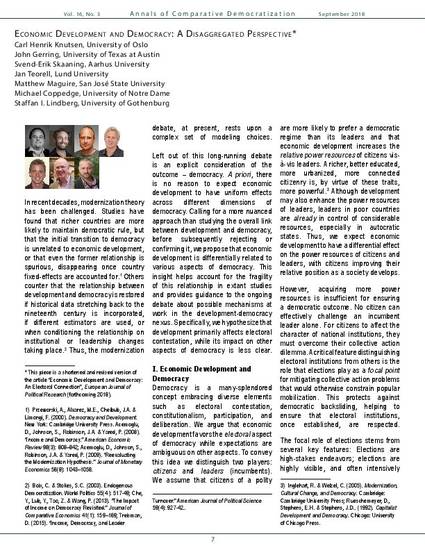
Article
Economic Development and Democracy: A Disaggregated Perspective
Annals of Comparative Democratization
(2018)
Abstract
In recent decades, modernization theory has been challenged. Studies have found that richer countries are more likely to maintain democratic rule, but that the initial transition to democracy is unrelated to economic development, or that even the former relationship is spurious, disappearing once country fixed-effects are accounted for. Others counter that the relationship between development and democracy is restored if historical data stretching back to the nineteenth century is incorporated, if different estimators are used, or when conditioning the relationship on institutional or leadership changes taking place. Thus, the modernization debate, at present, rests upon a complex set of modeling choices.
Disciplines
Publication Date
September, 2018
Publisher Statement
This article originally appeared in: Knutsen, C.H., Gerring, J., Skaaning, S., Teorell, J., et al.. (2018). Economic Development and Democracy: A Disaggregated Perspective. Annals of Comparative Democratization, 16(3), 7-11. Permission to post article here was granted by the publisher.
Citation Information
Carl Henrik Knutsen, John Gerring, Svend-Erik Skaaning, Jan Teorell, et al.. "Economic Development and Democracy: A Disaggregated Perspective" Annals of Comparative Democratization Vol. 16 Iss. 3 (2018) p. 7 - 11 Available at: http://works.bepress.com/matthew-maguire/4/
